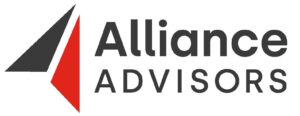Global sustainability reporting has hit a great reset

Sustainability reporting is entering a new era. Regulatory shifts, evolving standards and rising stakeholder expectations are reshaping the landscape, creating both challenges and opportunities for organizations worldwide.
Demand for consistent, comparable and decision-useful information continues to push voluntary standards toward harmonization, while jurisdictions move closer to mandatory frameworks. The result: a reporting environment that is more complex, but also more transparent, globally aligned and investor-focused.
Global snapshot
- US: While the SEC’s climate disclosure rule is paused, states are moving ahead. California’s SB 253 and SB 261 require Scope 1, 2, and (eventually) 3 GHG reporting plus climate risk disclosures beginning in 2026. New York, New Jersey, Illinois, Washington and Colorado are following suit with active or pending legislation.
- Canada: The Canadian Securities Administrators have delayed mandatory climate disclosure rules in 2025, but the Canadian Sustainability Standards Board (CSSB) has released voluntary standards with expectation of future mandatory adoption.
- EU: The Omnibus package is refining the CSRD, reducing scope, extending timelines and adjusting requirements. ‘Wave 1’ filers have already published first reports in 2025, providing lessons for subsequent reporters.
- New Zealand: First mandatory climate disclosure reports published in 2024, with further refinements under consultation.
- Australia: AASB S2 climate disclosure standard effective 2026, ISSB-aligned.
- Hong Kong: IFRS S2 climate disclosure required beginning 2026.
- Mexico: ISSB-based standards and GHG reporting for large entities effective 2025.
- Other Jurisdictions: Japan, Singapore, South Korea the UK, and others continue to advance mandatory ESG and climate-related reporting rules, rapidly aligning with ISSB-driven global disclosure standards.
Practical takeaways
Use the current ‘pause’ to prepare and plan. The emergence of ISSB-aligned standards is a clear sign that mandatory requirements are forthcoming, so ensuring readiness for regulations is key. Prioritize double materiality assessments and active stakeholder engagement, align disclosures with ISSB and TCFD frameworks and focus on specific material sustainability risks and opportunities.
Voluntary standards converge
The voluntary reporting space is consolidating around the ISSB, which aims to establish a global baseline. Frameworks such as SASB, CDSB, TCFD and GRI are merging or collaborating to create standardization, ensure interoperability and promote simplicity.
Organizations should consider these trends when developing or refining their reporting:
- Data and governance: Strong systems and materiality prioritization are essential.
- Shift in narrative: From broad ESG rhetoric to focused discussion of material sustainability risks.
- Transparency over greenwashing: Evidence-based commitments are vital for trust.
- Concise, visual reports: Investors want structured, machine-readable and impactful reports.
Building your sustainability reporting approach
- Understand expectations and requirements: Clarify which disclosures are mandatory and which are voluntary. Define the target audience, purpose and communication priorities early to ensure compliance and make reporting meaningful.
- Build strong engagement and collaboration: Engage shareholders year-round, not just at the annual meeting. Expand engagement to customers and other stakeholders. Internally, involve finance, operations, HR and procurement teams to create a cross-functional reporting process.
- Position reporting as strategic communication: Reporting should show how sustainability supports growth, risk management and long-term value creation. Don’t just ‘check the box’, but use the report as a storytelling tool to highlight how your company addresses material risks and seizes opportunities.
Sustainability reporting goes beyond compliance: it’s strategic communication. Companies that treat reporting as an opportunity to tell a clear, credible story will build investor confidence, strengthen stakeholder trust and position themselves for long-term success.
Emmanuelle Palikuca is managing director, global advisory and head of sustainability atAlliance Advisors







